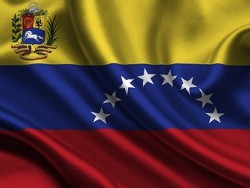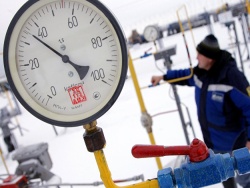
No light, no work in Venezuela have launched an all-out power savings. The inhabitants of the country in the next 40 days for four hours will be in the dark.
On the decision of the authorities has forced a severe drought that led to the fall of the water level on the key for the country’s hydroelectric dam to a critical level. Reservoir hydroelectric station. Simon Bolivar, also known under the name “Guri” is the largest in Venezuela, and its hydroelectric power station generated around 70 percent of its required energy. The reason was the strongest over the past 40 years the country’s drought.
That is why at the end of February, the government announced the transition of state institutions to a shorter working day. In early April, it was decided to reduce the number of working days from five to four. Yesterday announced hours Wednesday, Thursday and Friday.
By the way, the above limitations may lead to reduction of oil production in the 100-200 thousand barrels per day, that is almost 10% average daily production of the country, writes the Financial Times.
Venezuela is totally dependent on income from oil sales, that is why the country was so insistent on freezing production before a meeting of oil-producing countries in Doha. The growth of prices for “black gold” for the country is vital because of its financial situation after the collapse in oil prices was catastrophic.
If production in the country will actually fall by at least 5%, it will be another crushing blow to the economy. The government has now no money for the modernization of the oil infrastructure, so problems of the industry in the near future it is impossible to solve.
The international monetary Fund (IMF) has already warned that this year inflation in Venezuela may grow to a staggering 481% (now 122%). The economy is expected to shrink by 8%.
Little solace can be considered only the fact that the price of oil yesterday has renewed highs since the beginning of the year. Mix of mark Brent has exceeded $46 per barrel, but this figure is still lower than the average price over the past year.
Even if oil returned to $100 per barrel, as it was in the middle of 2014 to get out of the economic hole the country would be extremely problematic. This will require twice the resources.
Analysts at Deutsche Bank reviewed the country affected by the fall in oil prices more than the others.
Of the five most vulnerable countries, four countries are either net exporters of energy, or heavily dependent on energy: Venezuela, Colombia, Argentina, Brazil (Ukraine in this case an exception). These countries in any case will remain vulnerable regardless of the moderately high oil prices.
And in order to balance the budget of Venezuela, the oil price should be more like $200 than $100.
1st place for poverty
In the global index of poverty Venezuela does not take pride of first place. Issued forecast for the current year, and the figure of a “champion” should be 159,7 points (the ranking is based on the principle “the more – the worse”).
For comparison, in Argentina, in second place, 39.9, i.e. it is 4 times of its more prosperous Latin American neighbor. In Greece, in crisis after crisis, – 27. Ukraine – At 26.3. In Russia Is 14.5. In France, the second largest economy in the Eurozone and 11.1. Well, in Japan, the index is only 4 points, that is, the land of the rising sun 40 times more prosperous Argentina.
Venezuela it is necessary to save literally on all: available funds for additional power generation just yet. The mint of Caracas does not have time to print bolivars, the national currency imported from abroad dozens of cargo “Boeing”.
Extreme measures
In the early years, Venezuela has gone to extreme measures. It became known about the signing of Venezuela swap agreement with Deutsche Bank under which the country will exchange their gold reserves for the money to pay off debts. It turns out that the transfer of gold is not only on paper: we see the real sending gold to Europe – closer to the Deutsche Bank.
It turns out, the gold that Hugo Chavez for so long returned from Europe to his homeland after just a few years again returned to the Old world. Recall, from 25 November 2011 to 30 January 2012, Venezuela repatriated 160 tonnes of gold.
It is difficult to say what motives but judging by the economic situation in the country, little choice in the long run or not.







